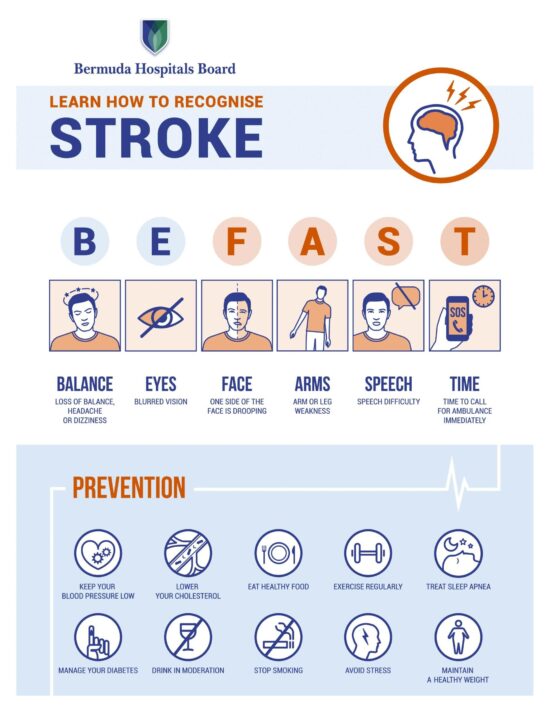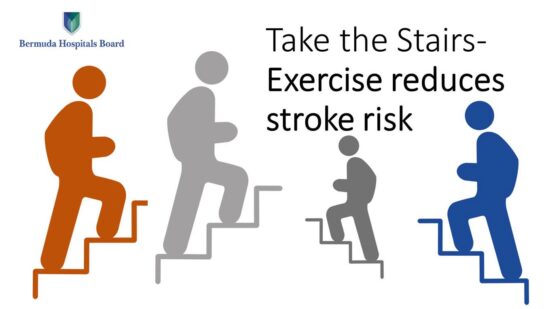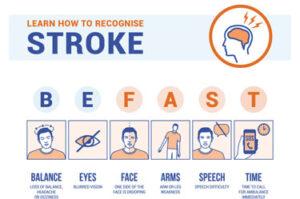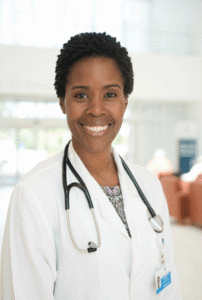Stroke and the holidays
Monday 16 December 2024: The Christmas holiday season, as joyful as it is, can also be stressful for many adults. Amid the increased pressures and demands, Bermuda Hospitals Board’s Primary Stroke Centre and Mid-Atlantic Wellness Institute urge everyone to be mindful of their mental and physical health.
Psychosocial stress, excessive alcohol intake, overeating, physical inactivity and sleep deprivation are common during this period and can increase the risk for certain health conditions, including stroke.
“In the US, more strokes are reported from November to February,” said BHB Primary Stroke Centre Director Dr Srinath Meadipudi. “That’s why we are encouraging the public again to get to the hospital as fast as possible at the earliest indication that someone may be experiencing a stroke.”
BE FAST is the acronym to help remember the signs and symptoms of stroke. If you or someone you know suddenly loses Balance, experiences a change in Eyesight, suffers Facial drooping, weakness in an Arm or leg, changes in Speech where it may become slurred or not accessible, then it’s Time to call 911 and report to the hospital immediately.
“When people seek emergency care quickly, our physicians can administer tenecteplase, a blood-clot-busting drug, within the crucial time window,” said Dr Meadipudi. “This treatment greatly improves stroke outcomes and helps stroke patients achieve better recovery.
“Since BE FAST was launched as part of our public education on stroke, we have seen a significant increase in the number of people attending the hospital at the first signs of stroke. Every minute matters, and presenting to the Emergency Department as soon as possible allows us to deliver the best possible care to those in need.”
BHB thanks everyone who has listened, learned and taken action by recognising stroke symptoms and seeking immediate medical attention.
“Together, we are improving stroke care and saving lives,” said Dr Meadipudi.
For information leaflets on stroke symptoms, what to do in an emergency and what you can do to minimise your stroke risk, please visit the Primary Stroke Centre online at bermudahospitals.bm.





 “Such a drastic change in a person’s mental and physical condition is understandably often traumatic, not only for the person but also for their family. It’s the reason many stroke patients become depressed in the days, weeks and months following their diagnosis.”
“Such a drastic change in a person’s mental and physical condition is understandably often traumatic, not only for the person but also for their family. It’s the reason many stroke patients become depressed in the days, weeks and months following their diagnosis.”